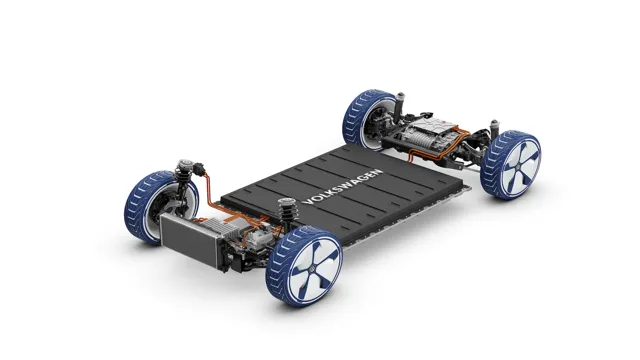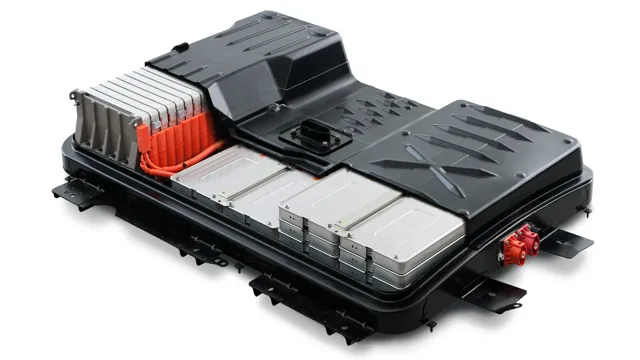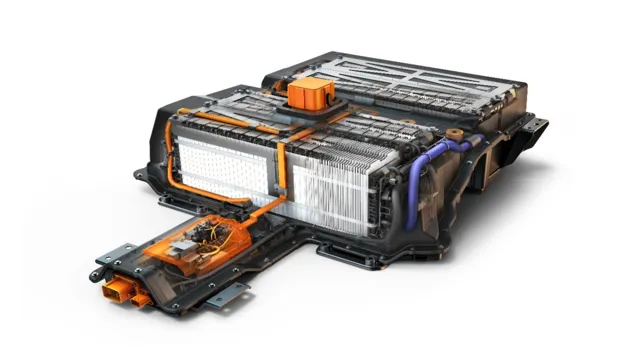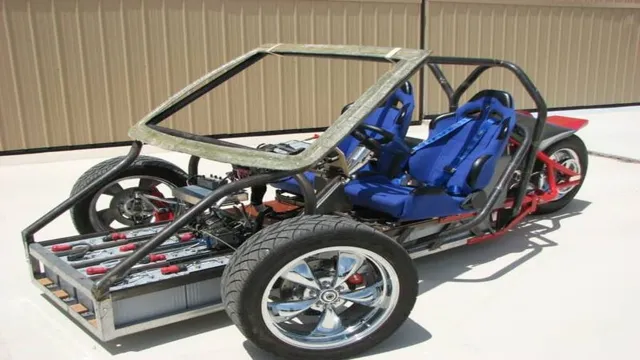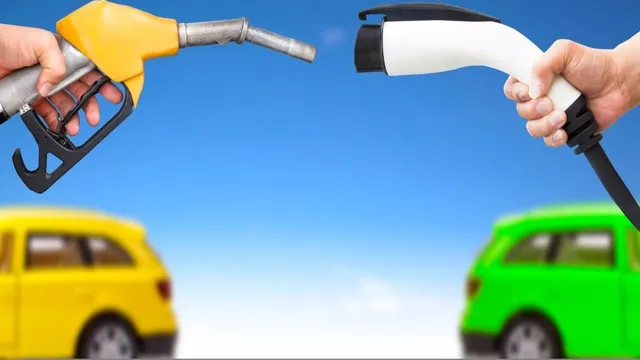Revving Up Your Ride: The Power Behind Battery Pack Electric Cars
Electric cars are increasingly becoming popular as people start to realize the benefits of using environmentally-friendly vehicles. One of the essential components of these vehicles is the battery pack. In this blog, we will explore the advantages of using battery packs for electric cars and why it’s considered a game-changer in the automotive industry.
The world’s transition to renewable energy is becoming a necessity as we fight against climate change. Electric cars, powered through rechargeable batteries, are seen as the future of transportation. Battery packs are a crucial part of the system as it allows electric cars to store energy that comes from an electrical outlet.
By using this system, you’re not only promoting the use of clean energy, but you’re also saving money on fuel costs. Another advantage of battery packs for electric cars is maintenance costs. Unlike gas-powered cars that require frequent oil changes, spark plug replacements, and other maintenance costs, electric cars do not have as many moving parts, which means lower maintenance costs.
The battery pack also has a longer lifespan compared to a traditional car battery, meaning you will save more money in the long run. Moreover, a battery pack’s ability to store power allows electric cars to support the power grid. Known as vehicle-to-grid (V2G), this technology enables the battery packs of electric cars to balance the grid by providing electricity during peak consumption periods and storing excess energy produced in off-peak periods.
It means that users of electric cars could earn from this power balancing scheme with added incentives. In conclusion, the benefits of battery packs for electric cars are not limited. From promoting renewable energy to cost savings and supporting the power grid, it proves that electric cars powered by battery packs are the better choice for a sustainable future.
Increased Range and Efficiency
One of the significant advantages of using a larger battery pack in an electric car is the increased range it provides. With more battery capacity, the vehicle can travel farther without needing to stop to recharge. This means that drivers can take longer trips without worrying about running out of power.
Additionally, larger battery packs can also increase the overall efficiency of the car by allowing it to use more of the stored energy before needing to recharge. This can result in lower costs for the driver and less reliance on charging stations. The implementation of more advanced technology in battery packs allows electric cars to be more reliable and practical for everyday use.
As the demand for electric cars continues to grow, the development of efficient and sustainable battery packs will play a crucial role in the future of transportation.
Battery packs can provide an increased range for electric cars, allowing for longer trips without needing to recharge. They also offer greater efficiency, reducing energy waste and saving money on fuel costs.
Battery packs can greatly benefit electric car owners in terms of increased range and efficiency. With a larger battery pack, electric cars are able to travel longer distances without needing to stop and recharge. This is especially useful for long road trips or for those who live in areas with limited charging stations.
Not only does this add convenience, but it also saves time and can reduce the stress of constantly worrying about running out of power. In addition, battery packs offer greater efficiency for electric cars. With more energy stored in the battery, the car can use it more efficiently, reducing energy waste and ultimately saving money on fuel costs.
This is particularly important in today’s society, where environmental concerns are growing and people are looking for ways to reduce their carbon footprint. By improving efficiency, battery packs can help contribute to a cleaner future while also providing a practical solution for electric car owners. Overall, battery packs are an important component in maximizing the benefits of electric cars.
They offer increased range, greater efficiency, and can ultimately save money and reduce energy waste. With the advances in technology, battery packs are becoming more affordable and accessible, making them a great investment for those who are looking to improve their electric car experience.
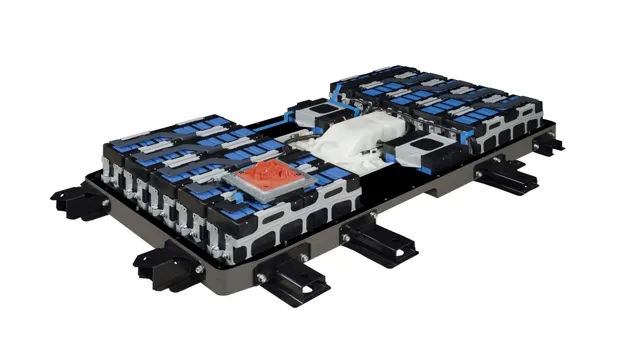
Environmental Benefits
There are several environmental benefits to using a battery pack electric car. One of the most significant benefits is that it produces zero emissions while driving. This means that there are no harmful pollutants released into the air that can harm the environment or contribute to climate change.
Additionally, electric cars are more energy-efficient than traditional gasoline-powered cars. This is because they convert more of the energy stored in the battery into power to move the car, compared to gas cars where much of the energy is lost as heat and other forms of waste. Another environmental benefit of battery pack electric cars is that they help to reduce our dependence on fossil fuels.
By using renewable energy sources like solar or wind power to charge the batteries, we can reduce the amount of oil and gas we consume, which can help to combat air pollution and climate change. Overall, switching to battery pack electric cars is a step in the right direction towards a more sustainable and eco-friendly future.
Using a battery pack in an electric car reduces the amount of harmful emissions released into the environment. This helps to combat climate change and improve air quality.
Electric cars are a great way to reduce the amount of harmful emissions released into the environment. One of the ways they do this is by using a battery pack instead of relying on fossil fuels. Using a battery pack in an electric car significantly reduces emissions because the car can run solely on electricity, which is a clean and renewable resource.
This helps to combat climate change and improve air quality, which has a positive effect on the health and well-being of people and ecosystems. In addition, electric cars are more energy-efficient compared to traditional gas-powered cars, which means they require less energy to go the same distance. This translates to lower emissions and reduced environmental impact.
Overall, using a battery pack in an electric car is a great way to reduce environmental damage without sacrificing performance or convenience. So, if you’re looking for a way to reduce your carbon footprint, consider making the switch to an electric car.
Cost Savings
Battery pack electric cars are creating waves in the automotive industry as they offer huge cost savings to drivers. These vehicles have a significantly lower running cost as they require much less maintenance than traditional gasoline-powered cars. With fewer moving parts and a simpler design, battery pack electric cars need less frequent oil changes and coolant flushes.
Additionally, they have fewer emissions which means that they don’t require regular smog checks. As a result, drivers save significant amounts of money on maintenance expenses over the lifetime of their vehicles. The initial cost of battery pack electric cars may be higher than traditional cars but the long-term savings are greater.
Plus, as more batteries are produced, the cost of production is expected to fall, making them even more affordable. So, if you’re looking for a car that offers great cost savings in the long run, then a battery pack electric car is a smart choice for you.
Battery packs can be more cost-effective in the long run, as they require less maintenance than traditional combustion engines and can save money on fuel costs.
Battery packs offer cost savings over traditional combustion engines in multiple ways. Firstly, they require less maintenance, as there are fewer moving parts to repair or replace. This prolongs their lifespan and reduces the overall cost of ownership.
Secondly, battery packs rely on electricity rather than gasoline, resulting in lower fuel costs. This can be especially beneficial for businesses with fleets of vehicles, as the savings can add up quickly. Additionally, with advancements in battery technology, electric vehicles can now travel longer distances on a single charge, making them a more viable option for long-distance travel.
Though the initial cost of a battery pack may be higher than a traditional engine, the potential savings over time make them a more cost-effective choice in the long run.
Reduced Noise Pollution
Reduced Noise Pollution; Cost Savings Have you ever noticed how loud some businesses can be? Whether it’s construction sites, manufacturing plants, or restaurants, noise pollution can be a serious issue. Not only can it be disruptive to nearby residents, it can also be harmful to employees’ hearing and overall health. That’s where reduced noise pollution comes into play.
By investing in noise-reducing measures, businesses can save money in the long run. Firstly, there are the potential legal costs associated with noise complaints, fines, and litigation. Secondly, reducing noise levels can lead to increased productivity and efficiency, as employees are less distracted and stressed.
Lastly, by implementing noise-reducing measures, businesses may be able to avoid expensive soundproofing solutions or upgrades down the line. In short, investing in noise reduction not only benefits nearby residents and employees, but can also result in cost savings for businesses.
Electric cars powered by battery packs produce less noise pollution than traditional cars, making for a more peaceful driving experience and reducing noise pollution in urban areas.
One notable benefit of electric cars is the significant cost savings they offer. With traditional gas-powered cars, drivers have to pay for oil changes, transmission repairs, and various other services quite frequently. Electric cars, on the other hand, require almost no maintenance.
While the initial cost of an electric car may seem high, the savings over time can be substantial. Additionally, electric cars tend to be more efficient than traditional cars, translating to lower fuel and maintenance costs. With electric cars becoming more popular, many cities and states offer tax incentives for their purchase, adding to the potential savings.
This makes them an attractive option for people looking to save money while reducing their carbon footprint. By taking advantage of cost savings from electric cars, drivers can put their money towards other things they enjoy and invest in a more sustainable future simultaneously.
Types of Batteries for Electric Cars
When it comes to electric cars, the battery pack is one of the most important components. There are several different types of batteries used in electric cars, each with its own benefits and drawbacks. The most common type of battery used is a lithium-ion battery, which is known for its high energy density and long life span.
Another type of battery used in some electric cars is the nickel-metal hydride battery, which is cheaper but has a lower energy density. Solid-state batteries are also starting to make an appearance in electric cars, promising even higher energy densities and safer operation. Ultimately, the type of battery used in an electric car will depend on several factors, including cost, performance requirements, and safety considerations.
No matter what type of battery is used, however, it is clear that the future of the automotive industry will be shaped in large part by advances in battery technology.
There are several different types of batteries used in electric cars, including lithium-ion, lead-acid, nickel-metal hydride, and solid-state batteries. Each has its own advantages and disadvantages.
When it comes to electric cars, there are different types of batteries capable of powering these vehicles. The most common types of batteries used in electric cars are lithium-ion, lead-acid, nickel-metal hydride, and solid-state batteries. Lithium-ion batteries are highly popular because they are lightweight, possess high energy density, and can store an enormous amount of energy.
Lead-acid batteries are less efficient and heavier than lithium-ion batteries but are cheaper and can still provide enough power for short distances. Nickel-metal hydride batteries are similar to lead-acid batteries but have more advanced technologies. They are more efficient and provide more range than lead-acid batteries but still lack behind the lithium-ion ones.
Solid-state batteries are the latest technology in electric car batteries and are still in the developmental phase. Compared to lithium-ion batteries, they are safer, have higher energy density, and longer lifespan. However, they are still not widely available in the market.
The type of battery used in an electric car depends on several factors, including cost, driving range, and performance. As the technology advances, we can expect newer and more efficient types of batteries to enter the market, providing even more choices for electric car buyers.
Lithium-ion batteries are the most common type used in electric cars, as they offer a good balance between cost, performance, and reliability.
When it comes to electric cars, the type of battery used is essential to their performance and overall cost. While there are different battery types available, lithium-ion batteries are the most common type used in electric cars for good reasons. Lithium-ion batteries offer a good balance between affordability, performance, and reliability.
They provide a higher energy density, meaning that they can store more energy while taking up less space and weight than other battery types. Additionally, they have a longer lifespan, reducing the need for frequent replacements, and they charge quickly, making them convenient for daily use. Other types of batteries such as lead acid and nickel-metal hydride may be cheaper, but they pale in comparison to the lithium-ion battery’s superior performance and durability.
Overall, it’s no surprise that lithium-ion batteries are the go-to choice for electric cars and will continue to dominate the market for years to come.
Future of Battery Packs for Electric Cars
Battery packs have been the backbone of electric cars for years now, and it’s fascinating to see how their technology has evolved. The future of battery packs for electric cars is looking bright, as advancements continue to facilitate more extended driving ranges and higher performances. Nowadays, more and more companies invest in the research and development of batteries as the core component for electric vehicles.
The most prominent obstacle to mass adoption of EVs has been the limited range and high costs associated with battery technology. However, with more significant investment and innovation, we see a shift towards a more accessible and sustainable future for electric vehicles. Automotive companies like Tesla, GM, and Volkswagen are constantly pushing the boundaries of what is possible with battery pack technology, aiming to further reduce costs, improve efficiency, and safety.
The evolution of batteries is an exciting prospect for the future of electric vehicles and renewable energy.
As technology advances, battery packs for electric cars are expected to become even more efficient, affordable, and environmentally friendly. This could lead to a more widespread adoption of electric cars in the near future.
The future of battery packs for electric cars looks promising as technology advances and research continues. Currently, one of the biggest challenges facing the electric vehicle industry is the battery’s cost and capability. However, with the increasing demand for electric vehicles and sustainable energy, battery manufacturers are working on producing more efficient, affordable and environmentally friendly batteries.
This could lead to a wider adoption of electric cars in the near future. A new type of battery called solid-state batteries is in its research stage and could be a game-changer for the electric vehicle industry. Solid-state batteries are believed to have a higher energy density, charge faster, and are less prone to catching fire than the traditional lithium-ion batteries.
This technology could revolutionize the automotive industry and make range anxiety a thing of the past. In conclusion, the future of battery packs for electric cars looks promising, and we can expect to see more innovations as the push for clean energy and sustainable transportation continues.
Conclusion
In conclusion, battery pack electric cars are the future of transportation. With their efficient and eco-friendly design, it’s clear that traditional gas-powered vehicles are on their way out. Plus, electric cars offer a unique experience when it comes to driving – there’s no more filling up at the gas station, just plug in your car and go! As we move towards a more sustainable future, battery pack electric cars will prove to be essential in helping to reduce our carbon footprint and preserve our planet.
So, if you’re still driving a gas guzzler, it might be time to upgrade to an electric car and join the green revolution!”
FAQs
What is a battery pack in an electric car?
A battery pack is a set of individual batteries that work together to power an electric car.
Can the battery pack be replaced in an electric car?
Yes, in most electric cars, the battery pack can be replaced when it no longer holds a charge.
How long does a battery pack last in an electric car?
The lifespan of a battery pack in an electric car depends on several factors, including usage, environmental conditions, and maintenance. Generally, a battery pack can last anywhere from 8 to 10 years.
Can a battery pack in an electric car be recharged?
Yes, the battery pack in an electric car can be recharged using a charging station or a charging cable that plugs into a standard electrical outlet.

